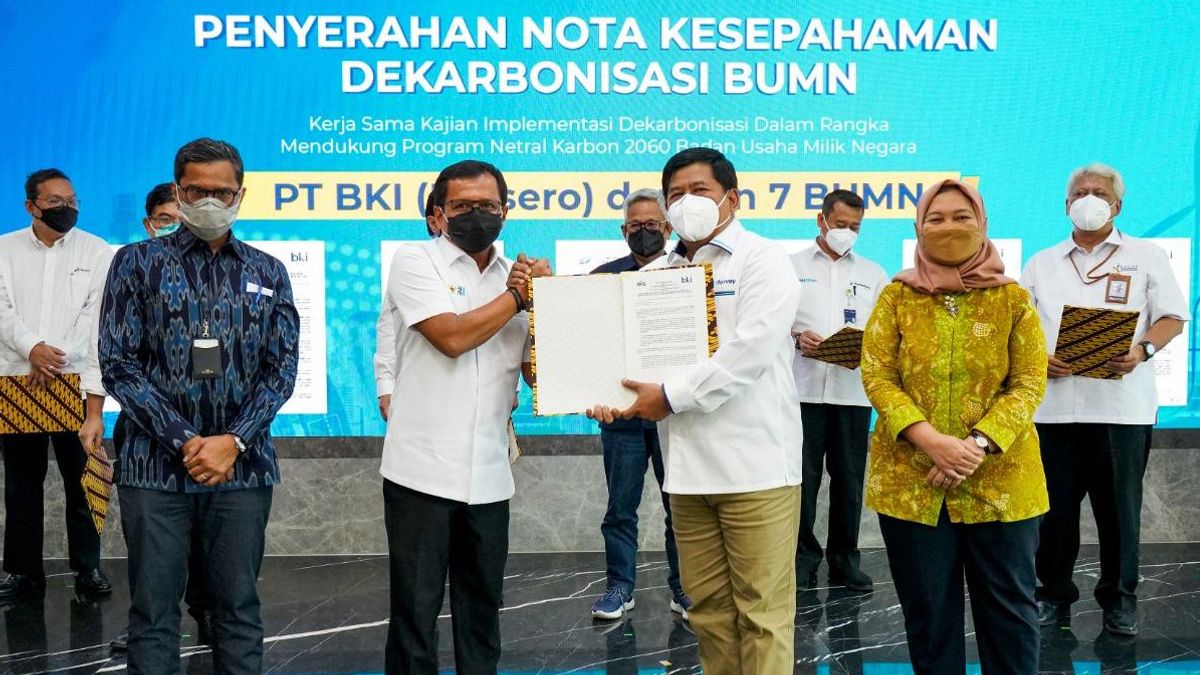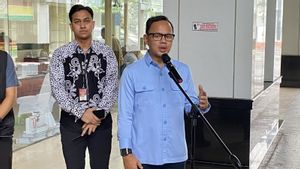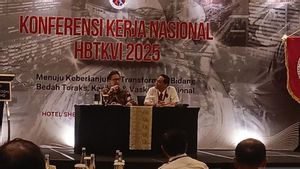JAKARTA - PT Semen Indonesia (Persero) Tbk (SIG) supports the efforts of the Ministry of SOEs in realizing the Government of Indonesia's commitment to achieve net zero carbon emissions by 2060. The GIS commitment was marked by the signing of a Memorandum of Understanding (MoU) on Cooperation in the Study of Decarbonization Implementation in Support of the Carbon Neutral Program 2060 with PT Bureau of Classification Indonesia (Persero) (BKI).
The signing of the MoU was carried out by the President Director of SIG, Donny Arsal and the President Director of BKI, Rudiyanto, witnessed by Deputy Minister of BUMN I Pahala Nugraha Mansury at the Ministry of BUMN Building, Jakarta, last Wednesday 2 February.
In addition to the GIS, the signing of the MoU was also carried out by BKI with a number of BUMN including Pertamina, PLN, Perum Perhutani, Pupuk Indonesia, MIND ID, PTPN, and EMI.
SIG's Corporate Secretary, Vita Mahreyni, said that in its operations, SIG has taken initiatives to reduce carbon emissions. In 2021, SIG has carried out several main work programs that are part of the SIG Sustainability Initiatives to support efforts to reduce carbon emissions.
"The main work programs in 2021 include reducing the clinker factor, increasing the use of alternative fuels and energy efficiency (electricity and thermal)," said Vita in her statement, quoted on Saturday, February 12.
According to him, another effort made by GIS in supporting the reduction of carbon emissions is the implementation of renewable energy in the form of solar panels.
"SIG has completed a pilot project of 10 kW solar panels installed in several plants, namely Ghopo-Tuban, Semen Padang and Semen Tonasa and has been operating well to produce electrical energy that is used in factory equipment," said Vita Mahreyni.
The Company also controls the emissions produced in the production process through the use of electrostatic precipirator system technology, conditioning towers, and bag filters at the factory to manage dust emissions. GIS also utilizes exhaust heat from the combustion process as a power plant using Waste Heat Recovery Power Generation (WHRPG) technology at the Tuban and Indarung factories.
"GIS also utilizes municipal waste which has previously been processed into Refused Derived Fuel (RDF) as alternative energy to replace coal at the Narogong and Cilacap factories. Utilization of waste into alternative fuel is a solution for better environmental management," said Vita Mahreyni. .
The English, Chinese, Japanese, Arabic, and French versions are automatically generated by the AI. So there may still be inaccuracies in translating, please always see Indonesian as our main language. (system supported by DigitalSiber.id)













